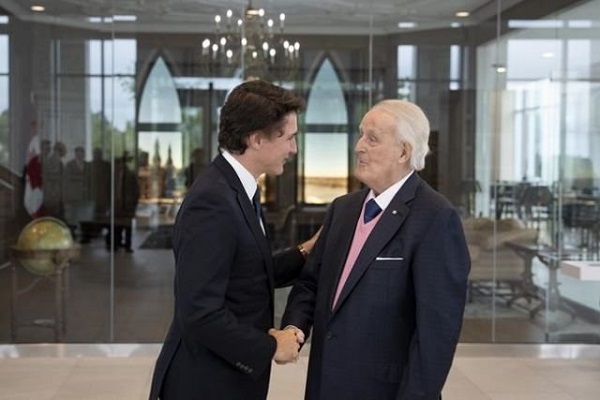Alberta
The USMCA’s self-destruct button: review clause conjures fears of 2018 all over again
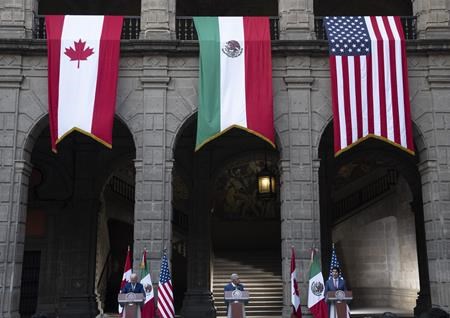
WASHINGTON — It’s been less than three years since the U.S.-Mexico-Canada Agreement replaced NAFTA as the law of the land in continental trade, and there are already hints of the existential anxiety that preceded it.
That’s because of the so-called “sunset provision,” a clause that reflects the lingering working-class distrust of globalization in the U.S. that helped Donald Trump get elected president back in 2016.
Article 34.7 of the agreement, the “review and term extension” clause, establishes a 16-year life cycle that requires all three countries to sit down every six years to ensure everyone is still satisfied.
That clock began ticking in the summer of 2020. If it runs out in 2026, it triggers a self-destruct mechanism of sorts, ensuring the agreement — known in Canada as CUSMA — would expire 10 years later without a three-way consensus.
For Canada, the sunset provision “is a minefield,” said Lawrence Herman, an international trade lawyer and public policy expert based in Toronto.
“It is certainly not a rubber-stamping exercise — far from it.”
Of particular concern is the fact that the provision doesn’t spell out in detail what happens if one of the parties indicates that it won’t sign off on extending the deal without significant changes to the terms.
“The concern is that this could mean, in effect, that we’ll be into a major renegotiation of CUSMA in 2026,” by which time the political landscape in both the U.S. and Mexico could look very different, Herman said.
“What happens then? The government and business community need to be thinking about this and start preparing the groundwork and doing contingency planning now.”
The deal as it stands is hardly perfect, if the number of disputes is any indication.
In the 33 months since USMCA went into effect in July 2020, 17 disputes have been launched among the three countries, compared with a total of 77 initiated over the course of NAFTA’s 25-year lifespan.
The U.S. remains unhappy with how Canada has allocated the quotas that give American dairy producers access to markets north of the border. Canada and Mexico both took issue with how the U.S. defined foreign auto content. And Canada and the U.S. oppose Mexico favouring state-owned energy providers.
The Canada-U.S. disputes are likely to be on the agenda when Prime Minister Justin Trudeau sits down later this week in Ottawa with President Joe Biden, his first official visit to Canada since being sworn in two years ago.
“The president’s really excited about doing this, about going up there and really going to Ottawa for no other purpose than the bilateral relationship,” National Security Council spokesman John Kirby told the White House briefing Monday.
Prior meetings between the two have typically been on the margins of international summits or at trilateral gatherings with their Mexican counterpart, Andrés Manuel López Obrador.
Kirby cited climate change, trade, the economy, irregular migration and modernizing the continental defence system known as Norad as just some of “a bunch of things” the two leaders are expected to talk about.
“He has a terrific relationship with Prime Minister Trudeau — warm and friendly and productive.”
Trade disputes notwithstanding, the overwhelming consensus — in Canada, at least — is that USMCA is vastly better than nothing.
“I don’t want to be alarmist about this, but we cannot take renewal for granted,” said Goldy Hyder, president and CEO of the Business Council of Canada, after several days of meetings last week with Capitol Hill lawmakers.
Constantly talking up the vital role bilateral trade plays in the continent’s continued economic health is a cornerstone of Canada’s diplomatic strategy. The message Hyder brought home from D.C.? Don’t stop now.
“We met several senators, we met people from the administration, and their message was, ‘Be down here. Make your case. Continue to remind Americans of the role that Canada has in their economy,'” he said.
“We’ve got to … be a little less humble in the United States and start reminding Americans just how much skin in the game that they have in Canada.”
That can be a challenging domestic political truth in the U.S., where deep-seated resentment over free trade in general and NAFTA in particular metastasized in 2016 and persists to this day.
Biden likes to put a blue-collar, Buy American frame around policy decisions. His original plan to advance electric-vehicle sales saved the richest incentives for vehicles assembled in the U.S. with union labour.
Aggressive lobbying by Canada helped avert a serious crisis for Canada’s auto sector; the Inflation Reduction Act that Biden ultimately signed included EV tax credits for vehicles assembled in North America.
For many, it was a cautionary tale about the importance of arguing Canada’s interests in Washington.
A strong U.S. depends on a strong Canada, said Rob Wildeboer, executive chairman and co-founder of Ontario-based auto parts supplier Martinrea International Inc., who took part in last week’s D.C. meetings.
“The USMCA and the ability to move goods across borders is extremely important to us, it’s extremely important to our industry, it’s extremely important to this country, and it’s a template for the things we can do together with the United States,” Wildeboer said.
“In order for the U.S. to be strong, it needs strong neighbours, and Canada’s right at the top of the list.”
This report by The Canadian Press was first published March 21, 2023.
James McCarten, The Canadian Press
Alberta
Danielle Smith warns arsonists who start wildfires in Alberta that they will be held accountable

From LifeSiteNews
The Alberta government has created an ad campaign highlighting the fact that most fires are caused by humans and not ‘climate change,’ as many left-leaning politicians claim.
In preparation for the so-called wildfire “season,” Alberta Premier Danielle Smith sternly warned anyone caught starting blazes in her province, including arsonists, that they will face charges and be held fully “liable” for all costs associated with the fires.
“As we approach the wildfire season, it is important to understand that 67% of wildfires in Alberta are started by people,” Smith posted Monday on X.
“If you start a wildfire, you can be charged, fined, and held liable for all costs associated with fighting the wildfire.”
Smith made the comments after last year revealing that most of the wildfires in her province (500 of the 650) were caused by humans and not “climate change,” as has been pushed by the legacy media and opposition politicians.
“All I know is in my province we have 650 fires and 500 of them were human caused,” she said, “so we have to make sure that when people know that when it’s dry out there and we get into forest fire season that they’re being a lot more careful because anytime you end up with an ignition that happens it can have devastating consequences.”
To go along with Smith’s Monday message, the Alberta government has also created an ad campaign highlighting the fact that most fires are caused by humans and not “climate change,” as many left-leaning politicians claim.
As reported by LifeSiteNews last year, Smith ordered arson investigators to look into why some of the wildfires that raged across the vast expanse of the province had “no known cause” shortly after they spread.
During the campaign of Alberta’s 2023 election, Smith, whose United Conservative Party won a majority government, had to pause to deal with many wildfires that suddenly, out of nowhere, ravaged the province. The fires came on suddenly and uncharacteristically considering the heavy snowfall in the province in early March and rain in April.
LifeSiteNews reported that despite the arrest of multiple arsonists, Canada’s mainstream media and the federal government have been pushing a narrative attributing the recent wildfires to “climate change.”
Indeed, in January, LifeSiteNews reported that a man from Quebec admitted to starting 14 forest fires himself. This put a chill to the legacy media’s push that the fires in the province were caused by “climate change.”
However, statistics from Canada’s National Fire Database show that wildfires have gone down in recent years and peaked in 1989.
As for Canadian Prime Minister Justin Trudeau, he has repeatedly used “climate change” and forest fires as a catalyst for propping up his government’s much-maligned carbon tax, which Smith opposes. He has blamed the fires on “climate change.”
A June 2017 peer-reviewed study by two scientists and a veteran statistician confirmed that most of the recent global warming data have been “fabricated by climate scientists to make it look more frightening.”
Trudeau has been calling for increased bans on Canada’s natural resources, of which Alberta has in abundance.
Smith has vowed to fight Trudeau on his attacks against Alberta’s oil and gas industry.
The reduction and eventual elimination of so-called “fossil fuels” and a transition to unreliable “green” energy has also been pushed by the World Economic Forum (WEF), the globalist group behind the socialist “Great Reset” agenda in which Trudeau and some of his cabinet are involved.
Alberta
Free Alberta Strategy backing Smith’s Provincial Priorities Act
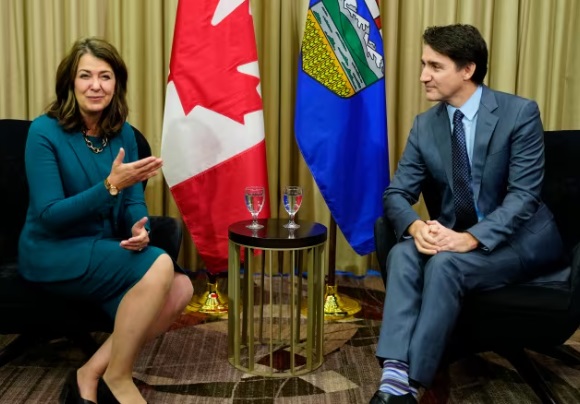
News release from Free Alberta Strategy
Premier Danielle Smith had a message for Ottawa last week.
Keep out.
On Wednesday, the Premier rolled out her latest weapon in the fight against federal intrusions into provincial jurisdiction.
If passed, Bill 18 – the Provincial Priorities Act – aims to align federal funding with provincial priorities, ensuring that said funding reflects Alberta’s interests.
The legislation stipulates that any agreements between the federal government and any provincial entities – including municipalities – must receive provincial approval to be considered valid.
Smith has already given it a nickname: “the stay-out-of-my-backyard bill.”
It’s an apt description of the legislation, especially considering that’s what the federal government has been doing for years – encroaching into Alberta’s jurisdiction.
The legislation shouldn’t come as a surprise to anyone.
We all know that most deals the Alberta government enters into with the federal government don’t work out for Albertans.
We end up paying more in federal taxes than gets spent in federal spending on the programs.
The programs come laden with restrictive conditions that undermine our autonomy, and are often detrimental to our ability to provide the services.
This is especially true with regard to the recent agreement between Ottawa and the provinces that allows the federal government to nationalize childcare.
The childcare agreement has come under heavy criticism due to funding shortfalls in the deal.
It also applies to housing, where despite Alberta accounting for 12% of the national population and experiencing the most rapid population growth, it received a mere 2.5% of the total $1.5 billion in federal housing funding last summer.
Jason Nixon, Minister of Seniors, Community and Social Services, is in charge of housing in Alberta – which is provincial jurisdiction.
On the latest rollout of conditional federal housing handouts, Nixon isn’t buying.
“We will not be bribed, with our own money, to increase the time it takes to get homes built with green energy that makes homes more expensive.”
The theory also applies to the federal government’s latest gambit – doing an end-around provincial negotiations and going directly to municipalities, who seem more interested in taking the money than the conditions attached.
Municipalities are provincial jurisdiction.
Bill 18 mandates that entities within Alberta’s jurisdiction, such as municipalities, universities, school boards, housing agencies, and health authorities, must seek the province’s approval before engaging in, modifying, extending, or renewing agreements with Ottawa.
Agreements between the federal government and provincial entities lacking Alberta’s endorsement will be deemed illegal under this legislation.
That’s Premier Smith’s message.
She’s had enough of it.
“It is not unreasonable for Alberta to demand fairness from Ottawa. They have shown time and again that they will put ideology before practicality, which hurts Alberta families and our economy. We are not going to apologize for continuing to stand up for Albertans so we get the best deal possible.
“Since Ottawa refuses to acknowledge the negative impacts of its overreach, even after losing battles at the Federal and Supreme Courts, we are putting in additional measures to protect our provincial jurisdiction to ensure our province receives our fair share of federal tax dollars and that those dollars are spent on the priorities of Albertans.”
Municipal Affairs Minister Ric McIver had additional thoughts:
“For years, the federal government has been imposing its agenda on Alberta taxpayers through direct funding agreements with cities and other provincial organizations. Not only does Alberta not receive its per capita share of federal taxpayer dollars, the money we do receive is often directed towards initiatives that don’t align with Albertan’s priorities.
“Albertans from all corners of the province expect our federal share of taxes for roads, infrastructure, housing and other priorities – not federal government political pet projects and programs in select communities.”
The Provincial Priorities Act is based on existing provincial legislation in Quebec – called “An Act Respecting the Ministère du Conseil executif” – which prohibits any municipal body from entering into or negotiating an agreement with the federal government or its agencies without express authorization from the Quebec government.
That’s right – the Quebec government has the same rule!
So, this boils down to the same argument we’ve been making for years – if Ottawa wants to step into our backyard, it must first seek Alberta’s approval.
Enough is enough – we won’t stand idly by as our interests are trampled upon.
It’s time for Ottawa to recognize Alberta’s autonomy and respect our right to determine our own future.
At the Free Alberta Strategy, we know that constant vigilance is necessary – for every fence we put up, the federal government tries to find a way around it.
We’ll continue to bring you information about what’s happening in Alberta’s backyard and fighting to keep Ottawa out.
The Free Alberta Strategy Team
-

 Alberta2 days ago
Alberta2 days agoFree Alberta Strategy backing Smith’s Provincial Priorities Act
-
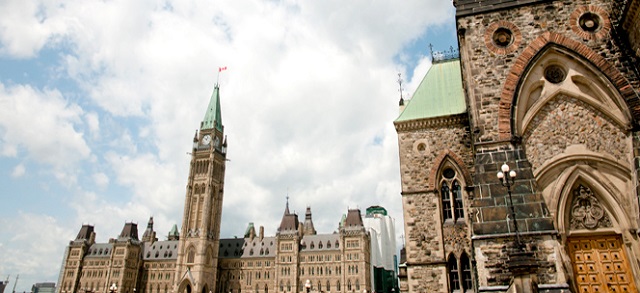
 Economy1 day ago
Economy1 day agoMassive deficits send debt interest charges soaring
-
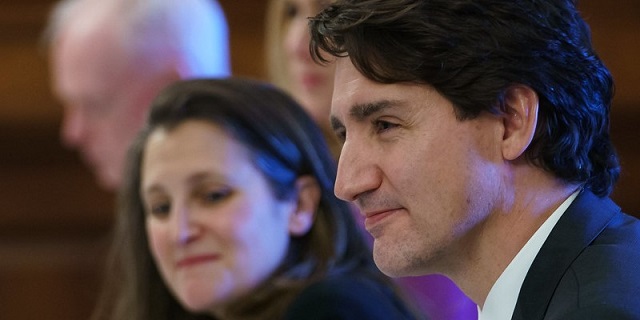
 Economy1 day ago
Economy1 day agoFederal budget’s scale of spending and debt reveal a government lacking self-control
-
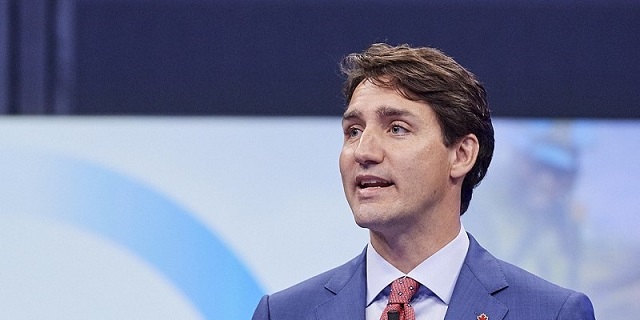
 Business16 hours ago
Business16 hours agoFederal budget fails to ‘break the glass’ on Canada’s economic growth crisis
-

 Automotive2 days ago
Automotive2 days agoBiden’s Kill Switch: The Growing Threat of Government Control of Your Car
-
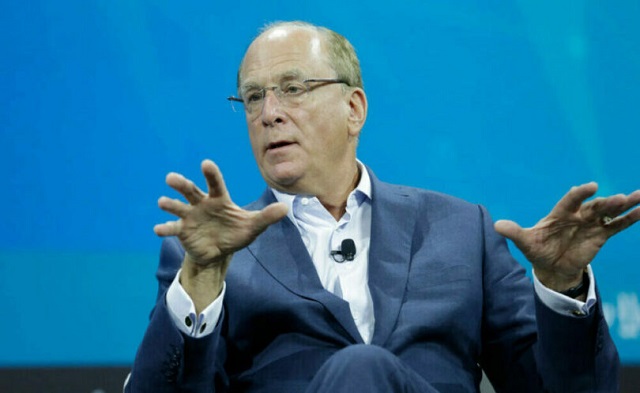
 Business2 days ago
Business2 days agoUS firms like BlackRock are dropping their climate obsession while Europe ramps theirs up
-
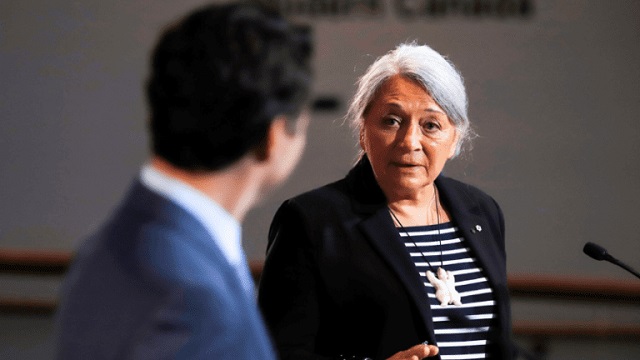
 MacDonald Laurier Institute2 days ago
MacDonald Laurier Institute2 days agoThe Governor General deserves better, but we deserve impartiality
-

 Economy1 day ago
Economy1 day agoFederal budget: You can’t solve a productivity emergency with tax hikes



